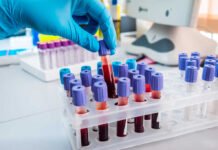
Dry skin is medically known as “xerosis,” and it is one of the most common medical conditions in the world. In addition, many things can cause it, and the leading cause is environmental triggers that dry up the skin. For instance, hot showers, harsh soaps, and dry weather can lead to moisture removal in the skin. Dry skin can also signify a more severe complication or result from an underactive thyroid called “hypothyroidism.” In any case, some specific tips and measures will help with dry skin. In this article, we shall discuss some of these tips.
Causes of Dry Skin
There are many causes of dry skin. These include the following:
- Age: Whether you are young or old, you can experience dry skin. However, dry skin is common among people in their 50s or older. This is because the glands responsible for producing oil in the skin tend to shrink in size as you grow older, with a corresponding reduction in the production of oil for the skin. In addition, medical conditions such as diabetes and kidney disease in older patients can also cause dry skin among the elderly.
- Atopic Dermatitis: A common variation of eczema, this skin condition causes itchy and dry skin. Those experiencing dry skin may notice a rash inside the elbow, hands, or face. In addition, an allergic skin reaction to specific triggers like perfume, sand, or detergent also causes atopic dermatitis. Therefore, keeping your skin moisturized is an excellent way of caring for your skin.
Tips to Care for Your Dry Skin
Several home remedies can solve dry skin. These include the following:
- Sunflower seed: First off, sunflower seeds help improve the skin’s hydration, according to a 2013 study. However, not all oils are suitable for moisturizing the skin. For instance, the same study indicated that olive oils damage the skin’s barrier.
- Coconut oil: Coconut oil can also hydrate the skin properly. A 2014 study highlighted that coconut oil is as effective as petroleum jelly for moisturizing dry skin. However, coconut oils also increase the number of fats on the skin’s surface.
- Oatmeal bath: Oatmeal is one natural ingredient that treats dry skin. A 2015 study revealed that oatmeal extracts contain anti-inflammatory and antioxidant properties that moisturize dry skin.
- Drinking milk: Finally, drinking milk helps to moisturize dry skin. Therefore, as indicated by a 2015 study, adding milk to your diet helps to improve dry skin.
- Use glycerin: Your skin becomes dry when it’s not properly moisturized, and glycerin is a colorless liquid great at binding with water. As a result, it can help your skin stay moisturized for a longer time and improve your skin barrier when you use it. You can find glycerin in many skin care products.
- Honey: According to a 2012 review, Honey is beneficial for treating many types of skin conditions. Honey has been shown to moisturize and heal the skin, as it possesses anti-inflammatory qualities. Honey can be directly applied to the skin.
- Petroleum jelly: Otherwise known as mineral oil, petroleum jelly has been a reliable source of relevant properties that have tended to the skin for many years. Speaking mater-of-factly, researchers in a 2017 study indicated that petroleum jelly improved older people’s skin barrier after using it.
- Aloe Vera: A 2003 study has noted that aloe vera gel may aid in providing relief from dry skin. Most people prefer to apply the aloe vera gel before going to sleep, leaving the aloe vera gel all through the night while covering the affected area with a sock or glove. You can apply the gel liberally to other body areas to achieve the same results.
- Use tea bags to alleviate inflammation: The Cincinnati Health Institute has noted that tea bags are more valuable than just brewing tea. According to the institute, black and green tea bags have anti-inflammatory and cooling effects on your skin. Further, black tea bags help to balance the skin’s pH level.
- Avoid possible irritants to your skin: For instance, sitting beside the fireplace or spending a significant amount of time in chemically-treated water may adversely affect the skin, causing it to feel dry.


















